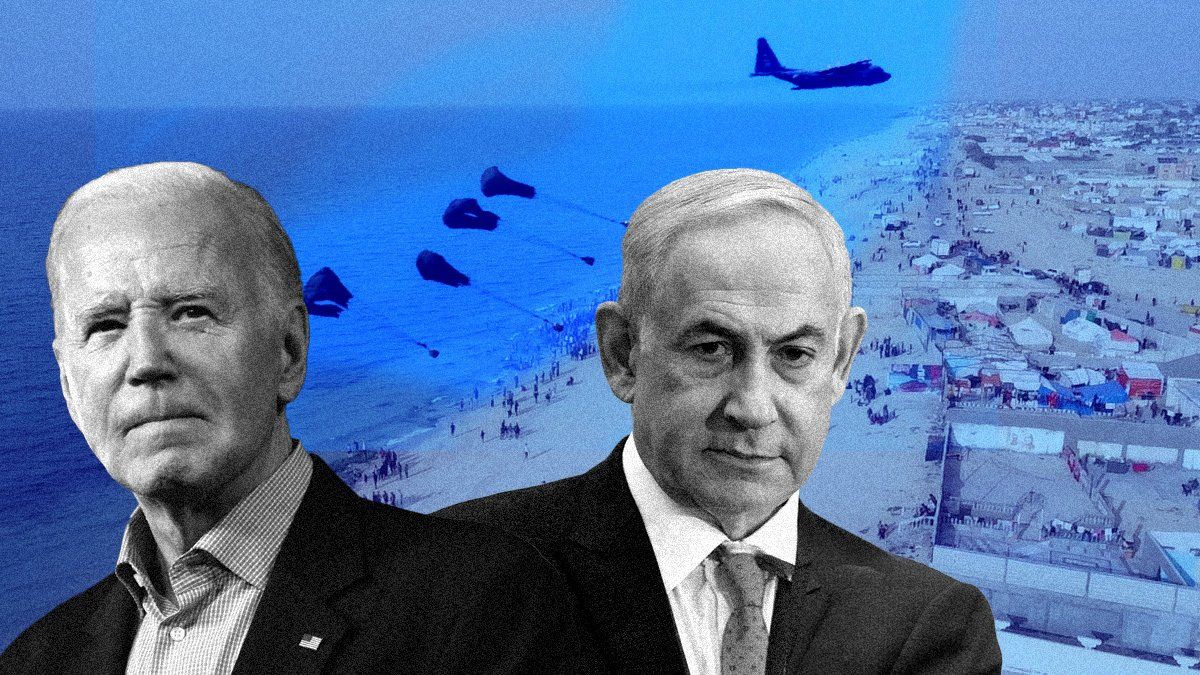The war in Gaza continues, and there are reasons to believe it’s going to persist for a long time still.
There had been a lot of hope that Israel and Hamas would have made a breakthrough deal by now trading an extended (albeit temporary) cease-fire lasting some six weeks for the release of a significant number of Israeli hostages and Palestinian prisoners. Just a week ago, it seemed likely that such an agreement would be reached before the start of Ramadan after Israel reportedly accepted the terms put forward by the United States, Qatar, and Egypt.
But with Ramadan now underway, the much-vaunted deal continues to be just out of reach. And there’s plenty of blame to go around.
Above all, Hamas now refuses to accept anything short of a permanent cease-fire and complete withdrawal of Israeli troops. The group has been emboldened by President Joe Biden’s warning to Israel that a ground incursion into Rafah absent a credible plan to protect civilians would cross a “red line” – the clearest reflection yet of the growing divide between Biden and the Israeli government.
Hamas is exploiting this rift, essentially daring the Israelis to storm a city where 1.5 million Palestinians are presently sheltering under dire humanitarian conditions with nowhere to go, just so it can weaponize civilian casualties and international outrage against them. By choosing continued fighting over a temporary cease-fire, it is putting Palestinian lives at maximum risk – as it has all the way through – to further delegitimize Israel, drive a wedge between it and the United States, and bolster its own political standing. Consider me shocked (not).
Prime Minister Benjamin Netanyahu, meanwhile, is doing what he knows best: trying to stay in power. What that means is not only that he has little interest in ending the (extremely popular) war – as he has all the way through – but also that he is more than willing to openly ignore, and even defy, Israel’s closest ally when politically expedient. Case in point: Netanyahu responded to Biden’s red line by declaring that Israel’s own red line is Hamas’ continued existence and promising to go into Rafah despite Biden’s opposition.
This was a rare instance in the war, however, when Netanyahu actually spoke for the entire Israeli war cabinet and the majority of the Israeli population rather than his private interests. Polls show that whether or not they like Bibi, and most of them don’t, the vast majority of Israelis do support the complete destruction of Hamas (whatever that means) and don’t want their military to stop short of achieving it (unrealistic as it may be). If that requires ground warfare in Rafah to take out all the organization’s remaining military capabilities, tunnels, and senior leaders, so be it. And if that comes at great loss of civilian life, creates tension with the US, and costs Israel more support on the international stage, well … that’s a price they’re willing to pay.
Accordingly, the expectation is that Israel will move forward with offensive operations in Rafah sooner or later. (Hamas no doubt is aware of that, which is partly why they continue to hold large numbers of hostages; after all, if they let them all go, what would be left to stop the Israelis from taking out their entire leadership?)
When the ground invasion happens, Biden will have no choice but to act on his red line, issued in response to mounting pressure from within his own party (not to mention blowback on the international stage) to distance himself from the Israeli government. But there’s only so much the president can credibly do given the bipartisan consensus – and his own personal support – for continued military aid to Israel no matter what … which, in turn, helps explain why the Israelis will go ahead with the Rafah incursion in the first place.
If I had to guess, the administration’s response will include a temporary pause in the delivery of some high-profile offensive weapons systems. But defensive systems like the Iron Dome won’t be affected, and the core US-Israel security relationship will remain unchanged. Progressives in Biden’s Democratic base will castigate the response as woefully insufficient … but that won’t stop Trump and most Republicans from seizing on the opportunity to claim Biden is abandoning a US ally American voters actually care about, dwarfing the damage from the botched Afghanistan withdrawal.
The domestic political impact of the pause on Biden will far outweigh its material constraint on Israel’s military capabilities, putting the president in an unenviable position. Everyone knows there is no credible risk to continued US military support for Israel. The fact that the Biden administration is having to airdrop humanitarian aid and deploy the military to circumvent a blockade being imposed by one of its closest allies makes it painfully clear that Washington has very little leverage over Israel’s actions … but no less responsibility for them in the eyes of much of the world – and many Americans at home.
That poses a serious and growing political challenge for the president in an election year … and a risk of wider radicalization worldwide, in an environment where Israel and the United States have lost the global information war and are becoming more isolated, with no easy way to contain the fallout.
